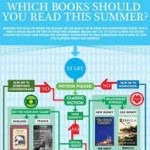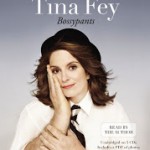Although the WFNS Literary Awards shortlists were announced much earlier in the summer, I didn’t get a chance to highlight them here. So I thought I would redress that oversight now 🙂
The Writers’ Federation of Nova Scotia facilitates three annual prizes for published works – the Atlantic Poetry Prize ($2000), The Evelyn Richardson Non-fiction Award ($2000), and the Thomas Head Raddall Atlantic Fiction Prize ($20,000), and offers support for the Ann Connor Brimer Award for Children’s Literature. Shortlists for the prizes are announced annually in June, and awards are presented annually in October.
Thomas Head Raddall Atlantic Fiction Prize Shortlist:
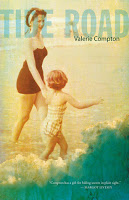 “Memory changes, as the events of history never do. On a strange warm day in January, Stella vanishes without a trace, leaving behind a young daughter and a husband bewildered by her sudden absence. The police officially label her disappearance an accident, a drowning. Stella somehow slipping beneath the thin ice of a nearby river. As her mother Sonia clings to the remnants of her family, she begins to harbour a deepening suspicion that Stella’s departure was no accident. With the deceptive draw of an undertow, the chaotic flotsam of misplaced dreams, bruised hopes and buried loves of Sonia’s past wells up to overwhelm her. Confronted with her own history of ill-considered choices and failures, Sonia is compelled to revise her preconceptions of her daughter’s life and dramatically alter the way she lives her own life.”–Publisher
“Memory changes, as the events of history never do. On a strange warm day in January, Stella vanishes without a trace, leaving behind a young daughter and a husband bewildered by her sudden absence. The police officially label her disappearance an accident, a drowning. Stella somehow slipping beneath the thin ice of a nearby river. As her mother Sonia clings to the remnants of her family, she begins to harbour a deepening suspicion that Stella’s departure was no accident. With the deceptive draw of an undertow, the chaotic flotsam of misplaced dreams, bruised hopes and buried loves of Sonia’s past wells up to overwhelm her. Confronted with her own history of ill-considered choices and failures, Sonia is compelled to revise her preconceptions of her daughter’s life and dramatically alter the way she lives her own life.”–Publisher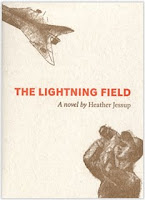
“Set against the backdrop of Cold War Toronto, The Lightning Field follows the lives of Peter and Lucy Jacobs from their post-war courtship through marriage and child-rearing in the suburbs. Though spanning four decades, the book pivots on the events of a single day: October 4, 1957. On this day, the Russians launch Sputnik into orbit, the Avro Arrow–the most advanced jet plane of its time, whose wings Peter Jacobs has engineered–rolls out onto the tarmac to great ceremony, and, in a nearby field, Lucy Jacobs is struck by lightning on her way to the event. In the aftermath of that day, Peter struggles with his wife’s hospitalization and recovery, the care of their children, and, eventually, the loss of his job when the Arrow project is suddenly terminated.
Their children–Kier, Andy and Rose–grow up in the sheltered cul-de-sacs of their Toronto suburb, troubled by the disappointments of their parents’ world, yet drawn to the infinite possibilities inspired by Laika the space dog and the mysteries of the Hardy Boys and Nancy Drew. If so much of what their parents hoped for in life seemed ultimately out of reach, how will this next generation of dreamers find their way? The Lightning Field is about loss and unexpected offerings, personal dismantling and reassembly.”–Publisher
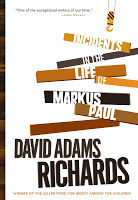
“When a terrible accident unsettles the peace in a small, tight-knit community, who will pay the price? The novel is a meticulous study of the various half truths, political machinations and outright lies that lead to the unfair incrimination of one man, Roger Savage, in the death of Hector Penniac, a promising young Micmac man from a local First Nations reserve.”–Publisher
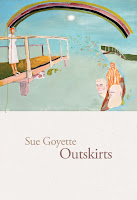
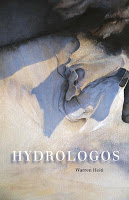
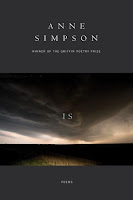 “A cell is a world within a world within a world. In this remarkable new collection, Anne Simpson finds form and inspiration in the cell – as it divides and multiplies, expanding beyond its borders. As these poems journey from the creation of the world emerging out of chaos to the slow unravelling of a life that is revealed in a poem that twists like a double helix, Simpson illuminates what it means to be alive, here and now. Rich with the muscular craft, vibrant imagery, and exquisite musicality for which her poetry is widely acclaimed, this collection sees Simpson continuing to “negotiate an ever-changing path between language and structure” (Vancouver Sun) – with astonishing results. It is a work of great vision from one of our most compelling poetic voices.” –Publisher
“A cell is a world within a world within a world. In this remarkable new collection, Anne Simpson finds form and inspiration in the cell – as it divides and multiplies, expanding beyond its borders. As these poems journey from the creation of the world emerging out of chaos to the slow unravelling of a life that is revealed in a poem that twists like a double helix, Simpson illuminates what it means to be alive, here and now. Rich with the muscular craft, vibrant imagery, and exquisite musicality for which her poetry is widely acclaimed, this collection sees Simpson continuing to “negotiate an ever-changing path between language and structure” (Vancouver Sun) – with astonishing results. It is a work of great vision from one of our most compelling poetic voices.” –Publisher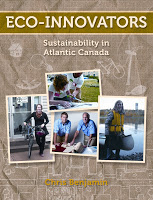
With ten chapters on matters like reducing consumption, greening the home, sustainable eating, dressing, transportation, and vacationing, the book is an important look into the lives of Atlantic Canadians committed to creating viable green options in our region.” -Publisher
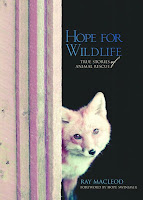
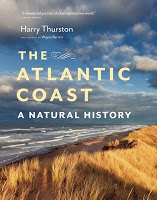
“Mixing observations, in-depth research, and vivid prose, Thurston explores the region’s geologic, ecologic, and cultural history, from the plate tectonics that created the landscape millions of years ago to the recent legislation protecting the degraded waterways of the east coast. Barrett’s gorgeous color photographs of land, sea, and sky supplement Thurston’s vivid descriptions, reminding us of our country’s great beauty.” – Publishers Weekly
Source: http://www.thereader.ca/2012/08/wfns-literary-awards-shortlists.html

